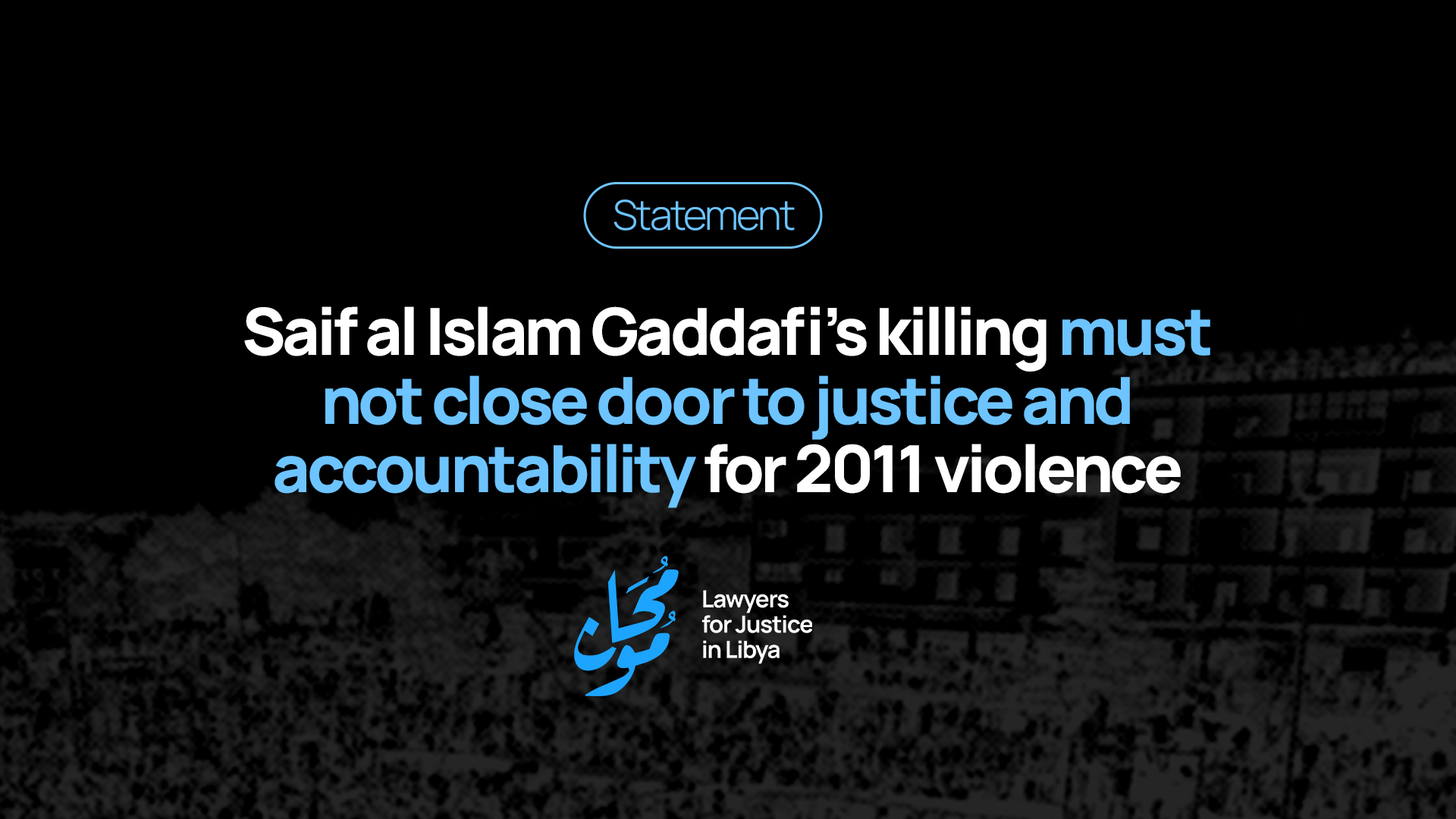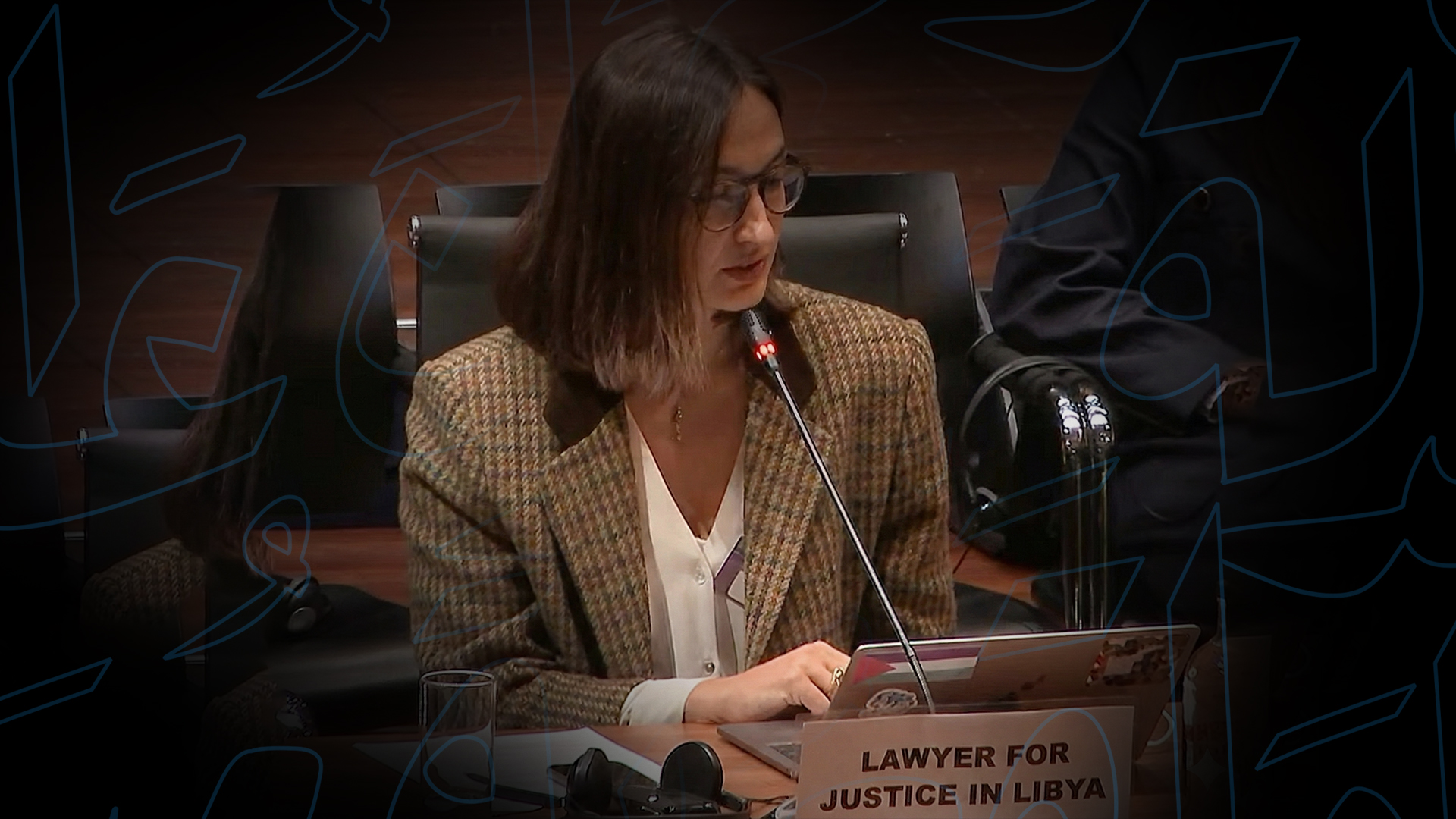Lawyers for Justice in Libya Commemorates the 2nd Anniversary of the 17 February Revolution, looks forward to Constitution
On the 2nd anniversary of Libya’s 17 February Revolution, Lawyers for Justice in Libya (LFJL) would like to congratulate all Libyans on the historic anniversary of the end of a repressive regime and commemorate the brave and bold achievements of the human rights activists, protestors, and the Libyan people who sacrificed their lives for the freedom, democracy, and dignity that citizens enjoy today.
This year’s successful democratic elections, large voter turnout, and peaceful transition of power to the General National Congress marked previously unimaginable achievements in Libya’s path to democracy and signified a unique opportunity for the Libyan population to rebuild a state founded on human rights, the rule of law and democracy. The past year was not, however, without out its challenges as Libya faced the continuation of human rights abuses, a lack of accountability for perpetrators, and impunity for violations committed in the name of the 17 February.
“To honour the 17 February Revolution is not to ignore human rights violations committed in the new Libya, but to address strongly the causes of those violations, hold accountable perpetrators, and ensure justice for all and impunity for none,” said LFJL Director Elham Saudi. “Ongoing violations, including the widespread use of torture and extrajudicial killings, the destruction of religious and historical sites, the displacement and collective punishment of minorities, and the lack of governmental accountability threaten Libya’s development into a state which respects and protects human rights and the basic principles on which the 17 February Revolution was founded,” added Saudi.
The 17 February Revolution was the result of numerous human rights grievances that accumulated over forty-two years of brutal dictatorial rule. In this respect, LFJL reminds the Libyan government of its obligation to its citizens to approach human rights challenges with transparency, a willingness to discuss openly how to overcome these challenges, and firmly to pursue accountability for perpetrators of human rights violations in order to end the legacy of impunity and prevent recurrence. The government’s willingness to react to these violations and create measurable accountability protections with transparency will be critical to Libya’s success as a democracy based on the rule of law.
LFJL optimistically looks forward to another year of democratic transition, featuring the drafting of Libya’s new constitution. The constitution will be the most important document in not only addressing the past legacy of human rights abuses, but also protecting the rights of the people of Libya from future abuses.
“As we Libyans prepare to write our constitution and decide our future, LFJL hopes the constitution will protect the fundamental rights of all individuals, disenfranchised groups, and women,” said Saudi. “LFJL calls on all responsible bodies and authorities to ensure that the constitution-making process is fair, transparent, and inclusive of all the Libyan people.”





